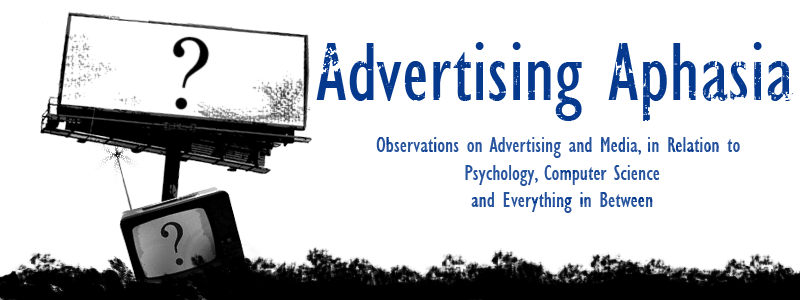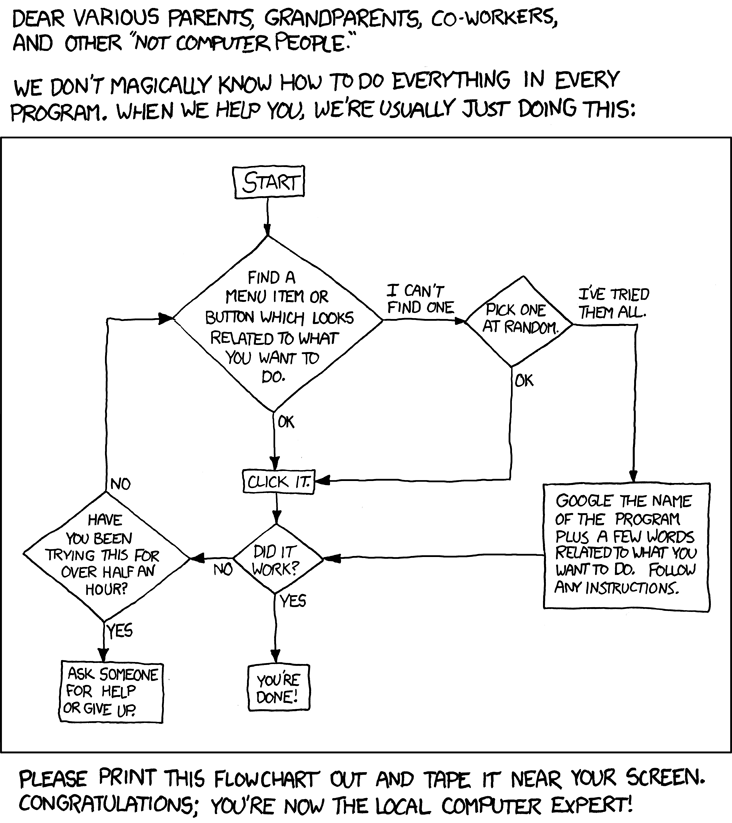99% of anything you could ever want to know about digital marketing/communications/advertising/etc. is probably three clicks away from here...(and if its not, you'll know more because of the search)
While I will illustrate why I think this is the case, I should first explain that I loathe any variation of the term 'getting' digital. I know it lives around the industry in a variety of permutations, each seeming to imply that with a bit of know how, the right information source and time, we shall all be able to master any part of the so called 'digital lexicon'. A generalizing term like this does two major disservices to everyone involved with it by:
1.) Dividing people (especially in an agency format) between those who understand digital concepts and those who don't allows no middle ground for learning. Everyone who 'gets' digital is expected to go out and do 'digital' things, while everyone who doesn't is expected to avoid it, learn it or simply claim ignorance. In any other concept, we know that experience is a gradient, not a binary situation, so why should it be different when it comes to the world of digital marketing. People, especially within a company structure, should be encouraged to share and claim areas of expertise within the digital space, while simultaneous asking for help and learning openly in others, breaking a binary learning situation into a series of educational processes.
2.) Simplifying the world of digital marketing into the all econmpassing 'digital' concept overlooks the multitude of specializations and topics housed within. While everyone may claim that their organization or team needs to be more 'digitally' focused, what this means varies by client, objectives or company. Digital marketing/advertising & media can combine anything from development and creative construction to ad servers, analysis, search specializations & marketing, design or data warehousing and visualization (as well as a host of other things). No one person can ever be expected to be an absolute expert on everything within the 'digital' arena. Instead, people must strive to leverage areas of expertise against other areas of basic functional knowledge to create a more complete picture of what an organization can do for its clients within the digital spectrum.
This XKCD comic may be for tech support issues, but it holds true for about everything in the digital space.
More generally, I think that if you approach the variety of digital marketing as neither an expert or an agnostic, the autodidact process fueled by something like Google.com makes sense. Coming from a programming background before going into marketing properly, I've grown up with the idea of spending 5 minutes of searching before I would go anywhere else for the solution to a coding problem (generally because the messiness of my code means asking anyone else would take far longer). With this approach, most everything I could encounter has already been sorted and fixed by someone on a programming message board and as such, I don't have to go beyond myself and the internet to find the solution.
Now I understand that very few people within agencies are expected to know how to program anything more complex than the wonders of Microsoft Excel and a bit of VBA. However, taking this approach, breaking it down to a few core concepts and using it to understand digital marketing may make sense. If I've learned anything from programming its that:
a.) There is usually a solution to every problem you have with a computer if you just search enough
b.) There isn't much harm in trying something out either to fix an error or learn something. Short of deleting odd files or messing around with hardware, most of your actions can be undone quickly.
c.) If 'b' seems like it won't hold true, back everything up and try anyway.
d.) While something may seem rather complex, enough people had to understand it to create it and then more people had to use it until it became popular enough that you've seen it, therefore it can't realistically be that hard.
With this type of orientation towards digital concepts and a few minutes on Google, there probably isn't much that can't be figured out. Given the way information is available to us today, there really isn't a reason for anyone to say that they 'don't get technical things' or 'don't do a lot of digital marketing'. For problems from understanding how APIs work to what you can do with a Facebook page, how data comes from an adserver or how search gets ranked, you don't have to be an expert, but the basics can be found in about a few searches.
Now, finally, I will admit that rather specific or time sensitive issues might lend themselves to going to whomever has been designated as 'getting' that aspect of digital, but a genuine and fearless interest in digital marketing still shows through in conversations with others. If issues are approached as opportunities to learn, such as when you seek out solutions individually, then this genuinely comes across to others as well (instead of leaving them to feel as if the issue was dropped in their laps).
I would then humbly suggest that a truly 'digitally oriented' agency, is one that takes advantage of the wealth of information available to each individual, genuinely tackles problems alone or together (instead of avoiding issues) and knows that if all else fails, enough searches (or emails to vendors/reps/etc.) will yield useful learning and hopefully the end of a recurring problem.











